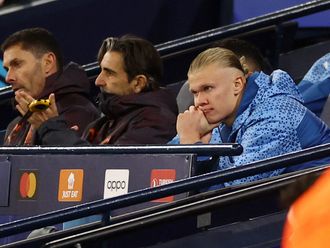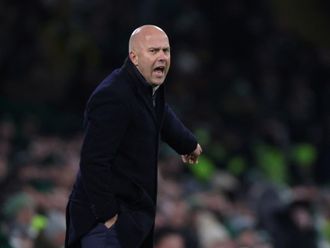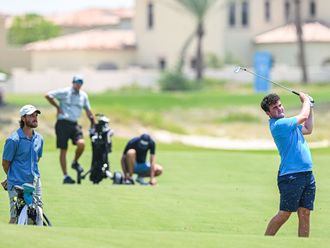Paris: Uefa are unhappy about the state of pitches at Euro 2016, in particular in Marseille, Saint Denis and Lille, and are working to improve them as the championship enters its second week, tournament director Martin Kallen said on Friday.
With 18 games played so far during the monthlong, 24-team tournament, the demands on pitches have never been greater at a Euro tournament.
Some stadiums are hosting six games and wet weather across France is visibly having an impact.
“The pitches should be better and we’re not happy,” Kallen told reporters. “We have taken measures to preserve pitches but in a summer tournament you don’t expect it to rain so much.” In the month leading up to the championship, northern France suffered some of the worst flooding in decades.
Heavy and random showers have continued across the country in June even forcing the Northern Ireland and Ukraine game on Thursday in Lyon to be temporarily halted due to a hail storm.
The surface in Marseille has drawn the greatest criticism. France coach Didier Deschamps called it a disaster and questioned the stadium owners’ decision to hold a heavy metal AC/DC concert at the Stade Velodrome a few weeks before the tournament.
“It doesn’t help build your play and leads to a lot of technical errors,” he told reporters after his team’s last-gasp victory over Albania. “Honestly when I saw the photos and videos at the end of the concert, I thought I was in another world, but that’s the power of Highway to Hell.” On Friday, Uefa cancelled training for the Iceland and Hungary teams at the Velodrome ahead of Saturday’s game.
With the exception of the Parc des Princes in Paris and Lens’s Bollaert-Delelis which are used only for soccer, all the stadiums in the tournament have multiple uses with owners maximising commercial activity in them.
New roofing often limits natural light and wind in the stadiums, meaning pitches get moist and can cut up too easily.
“Pitches are a major issue in modern stadiums because they are multifunctional arenas,” Kallen said.
Kallen, who as tournament director took over responsibility for the stadiums at the end of May, said specialists were working with existing greenkeepers to restore pitches.
Techniques include the use of drying machines and fertilisers to have a quick impact on the surface. Ground staff have also been out quickly after matches with mowers and pitchforks to prepare the pitches for the next game.
Uefa have in the past opted to relay a pitch. After a torrential downpour in Basel during Euro 2008 in Switzerland, they decided to replace the entire surface as it was too badly damaged from the rain.
Kallen said that could be done again if needed.
“We had no choice but to replace the pitch. The risk was enormous,” he said.












